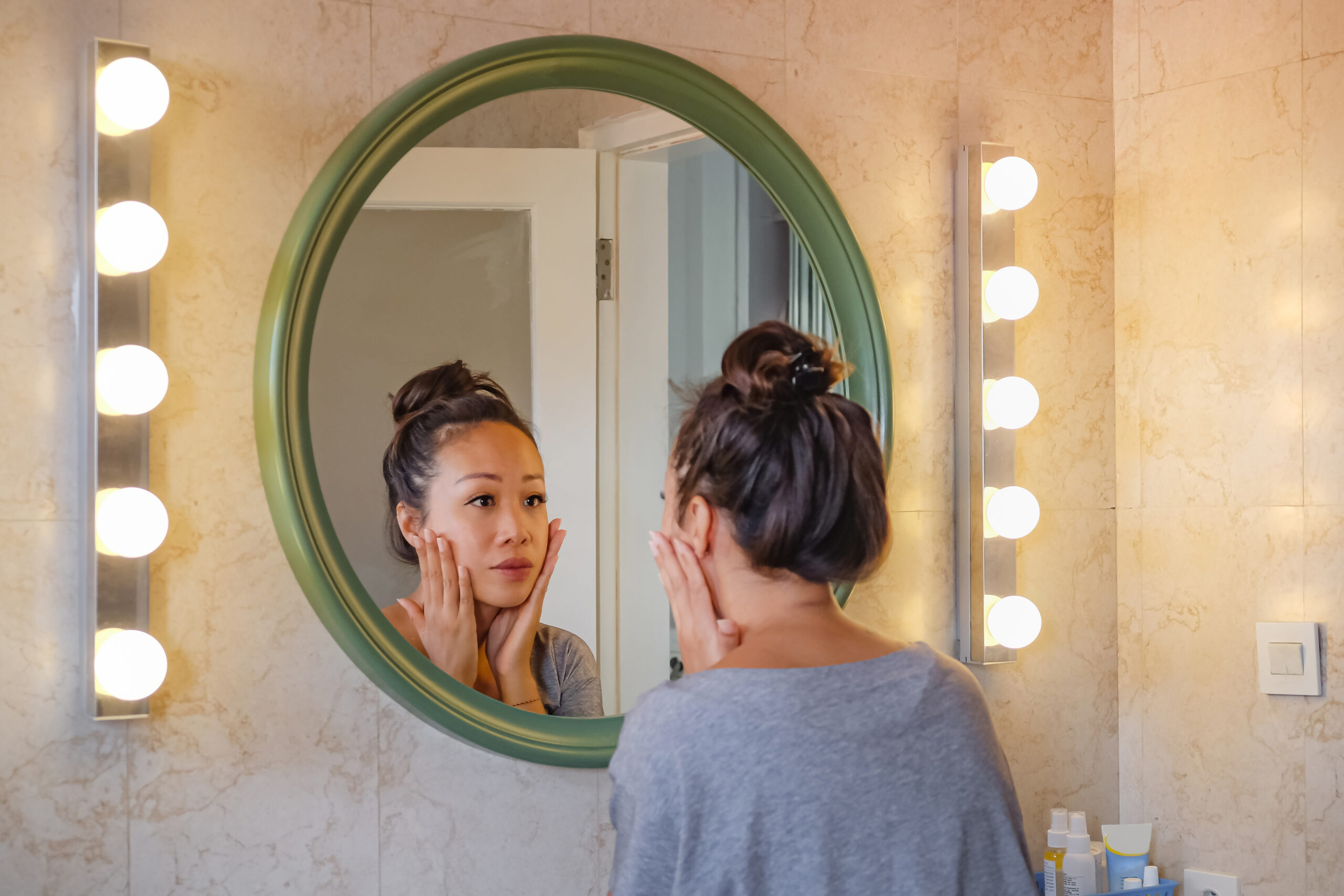
Acne breakouts are aggravating on their own, but add in those pesky scars that follow and you can be left feeling defeated. While acne scars can be treated, it’s recommended that you first deal with your acne issue because new breakouts are going to lead to new scars.
Ugh, we all know that’s easier said than done. So we called in the experts: a few highly respected and experienced dermatologists from around the country. They’re here to help us break down acne myths and truths, suggest the best treatments to remove acne spots at home, discuss treatments for cystic acne, and tell us when we actually need to make an appointment with a dermatologist to improve the condition of our skin.
What Exactly Is Acne?
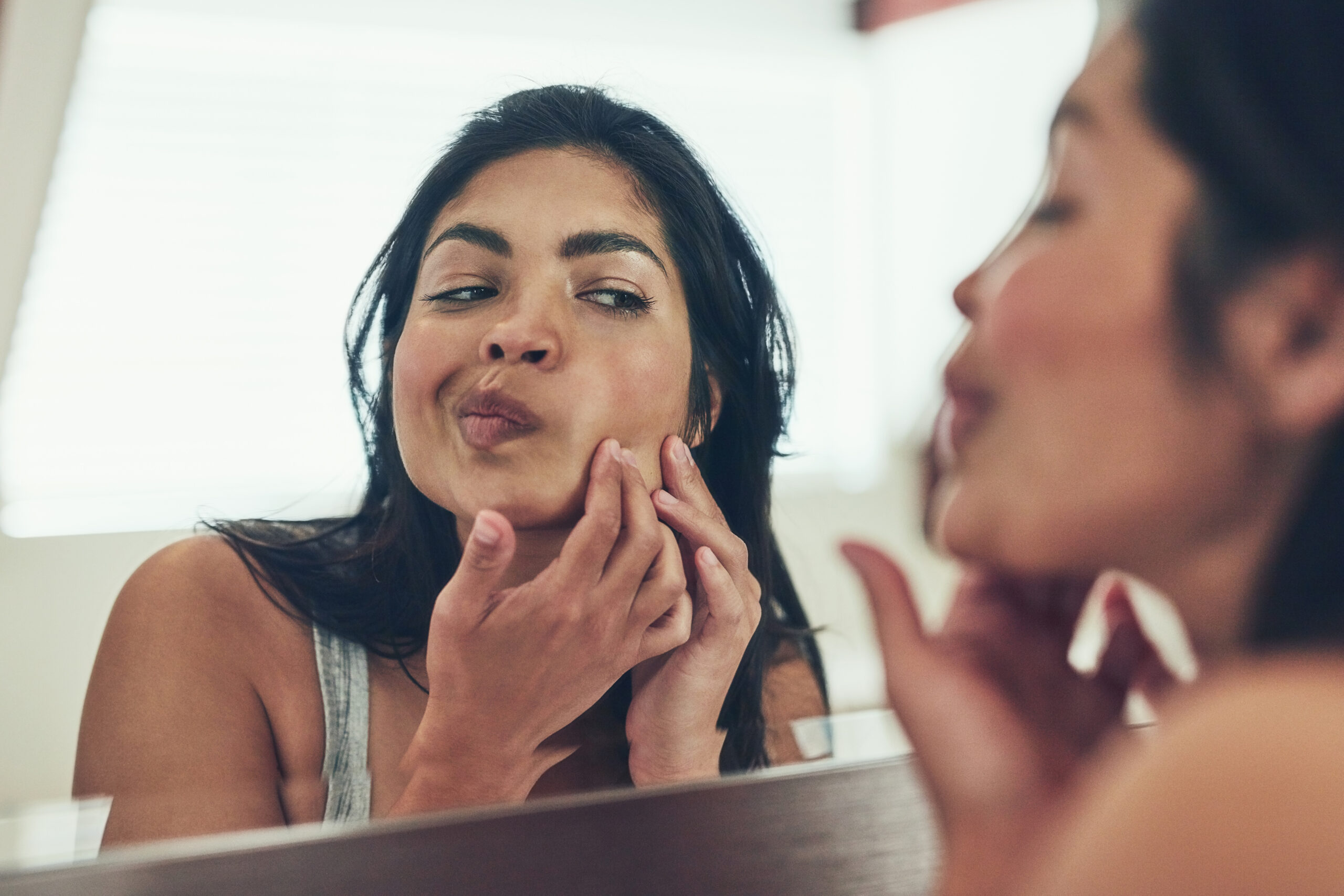
“Acne is formed when dead skin cells clog pores,” explains Dr. Lina Kennedy, a board-certified dermatologist practicing in Southern California. “The oil that our skin produces then makes the dead skin cells sticky. This makes for the perfect environment for bacteria living on our skin to multiply.”
What Causes Acne?
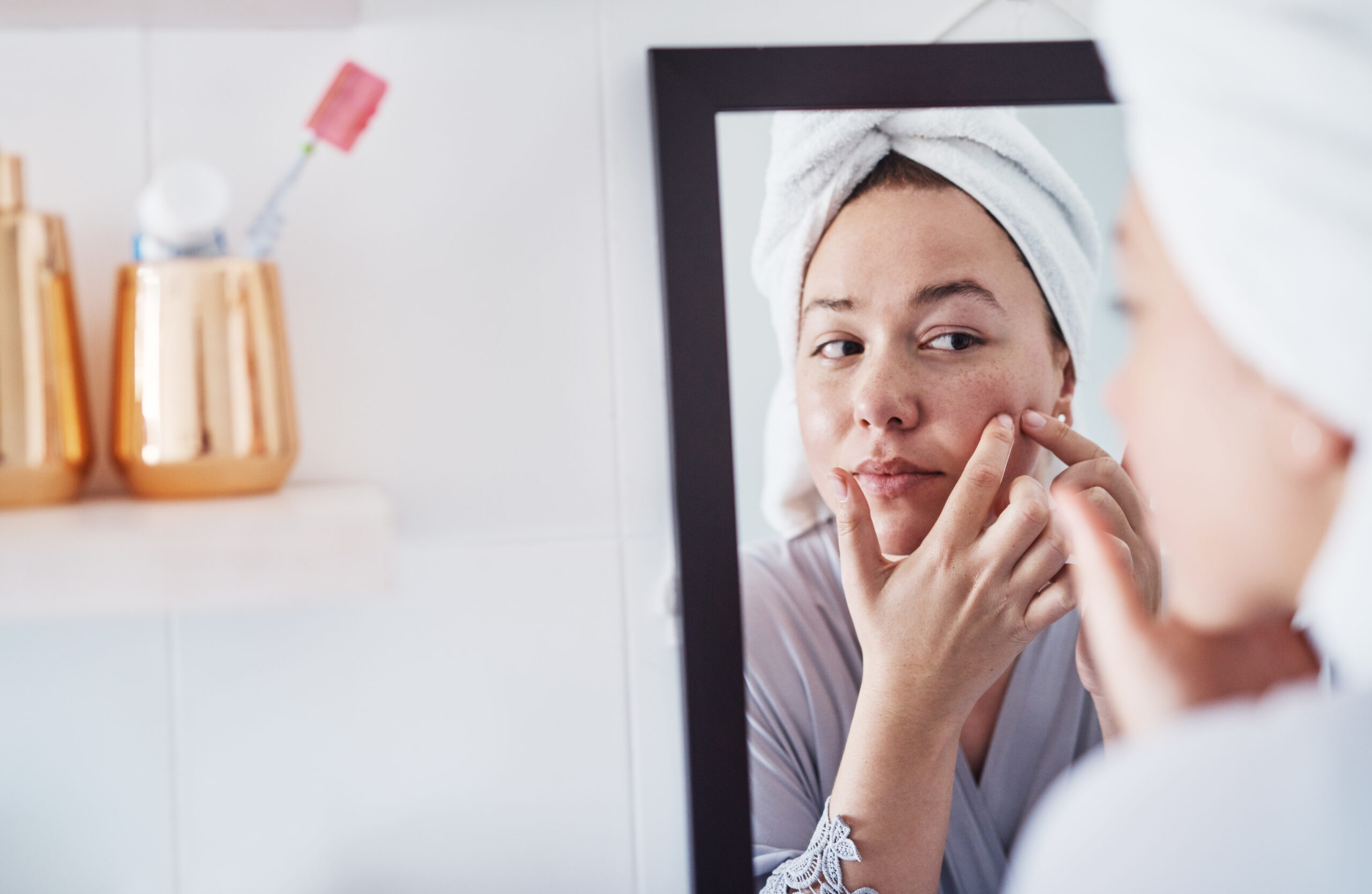
The entire process of acne forming then “leads to a whole lot of inflammation and this is what makes a pimple look red and angry,” Dr. Kennedy adds.
It's generally said that diet and stress cause acne, but there are specific reasons that these two factors give us flareups. Because acne is an inflammatory skin condition, “anything that increases inflammation can trigger or worsen acne,” explains Peterson Pierre, MD, of the Pierre Skin Care Institute. “Stress releases pro-inflammatory hormones in the body and high-sugar foods can also increase inflammation in the body. These rules aren't universal, of course, but can contribute to acne.”
There are so many other variables that can contribute to acne thriving on our skin. “There are some factors that make acne worse including: genetics, family history, hormonal factors (high levels of androgens or testosterone), environmental factors (cosmetics, humidity, pressure from friction), medication-related causes, and variations in the immune system,” notes Dr. Anna H. Chacon, MD FAAD, a board-certified dermatologist, and expert medical writer for the ZELEN Life blog. “Dietary factors include excess dairy, meat protein and sugars in the diet. Pustules from acne can worsen with diets that are high in iodine and low in zinc.”
Dr. Sanusi Umar, CEO of Dr. U Hair & Skin Clinic advises: “If you are not an individual who is predisposed to breakouts, fast food or increased stress levels are not likely to make acne suddenly spring up.”
When & Why Do Acne Scars Form?
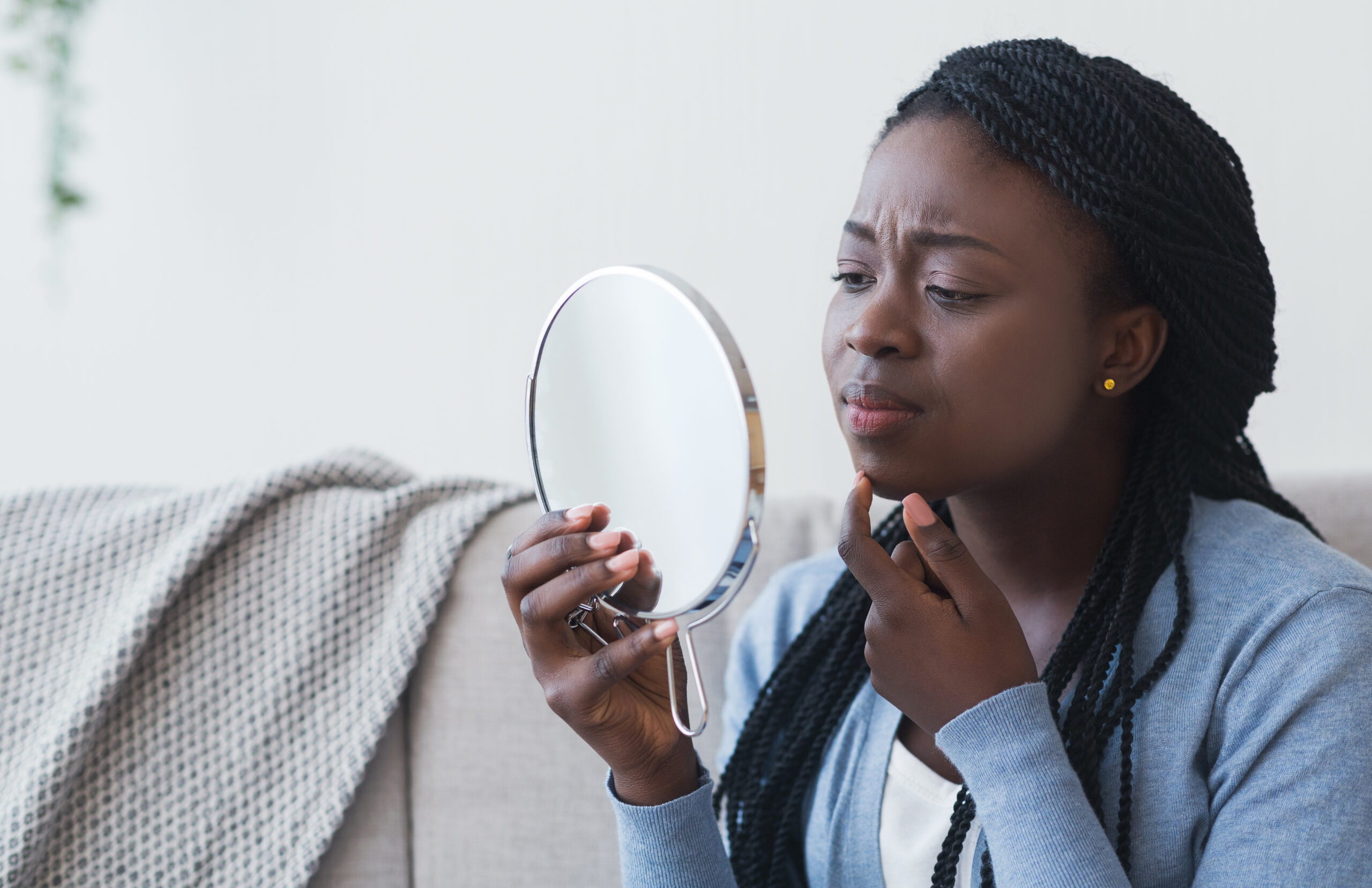
Dr. Kennedy: “The inflammation can be so large causing rupture of the follicle wall within a pore — this is what leads to a scar. There are many types of acne scars and which one you end up with depends on how deep that pimple goes. If it is deep within the skin, you can have a deep, obvious scar. Superficial acne and inflammation generally heal well without a scar, but perhaps a discoloration.”
Dr. Chacon: “Acne scarring can sometimes be worsened by picking at the skin, particularly picking so much that bleeding occurs and a scar or scab forms on top of the site.”
Dr. Pierre: “Acne scars depend on the severity and duration of the acne. Inflammation and injury lead to scars so it's best to address acne as soon as possible to minimize your risk of scars.”
Dr. Umar: “Acne scars can form anywhere you have had acne especially if a wound was created in its aftermath. Most breakouts will not cause scarring, but deep, cystic acne does have the potential to scar. This is especially true if you frequently touch acne spots or try to ‘pop’ them.”
What Is Cystic Acne?
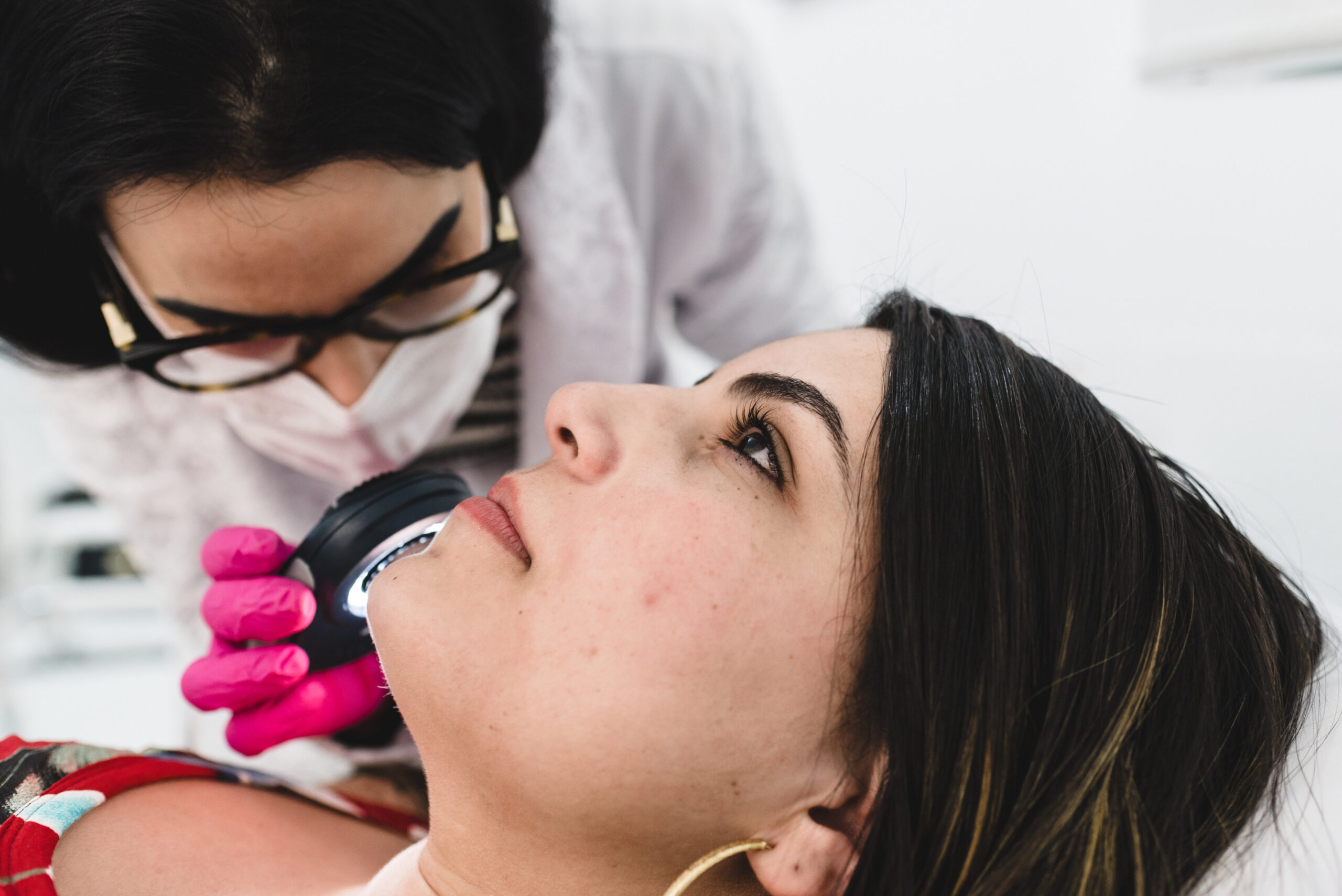
Dr. Kennedy: “Cystic acne is the most serious type of acne. Unfortunately, this type of acne can lead to scarring and many times it can be severe. This is because in cystic acne, the cyst is deep within the skin.”
Dr. Umar: “It is best to always wash your hands before touching or cleaning your face, and to leave acne to heal on its own. The best thing you can do to reduce acne scarring is to not manipulate it as it can cause the problem to worsen or scar.”
Can You Get Rid of or Lessen Acne & Cystic Acne Scars?
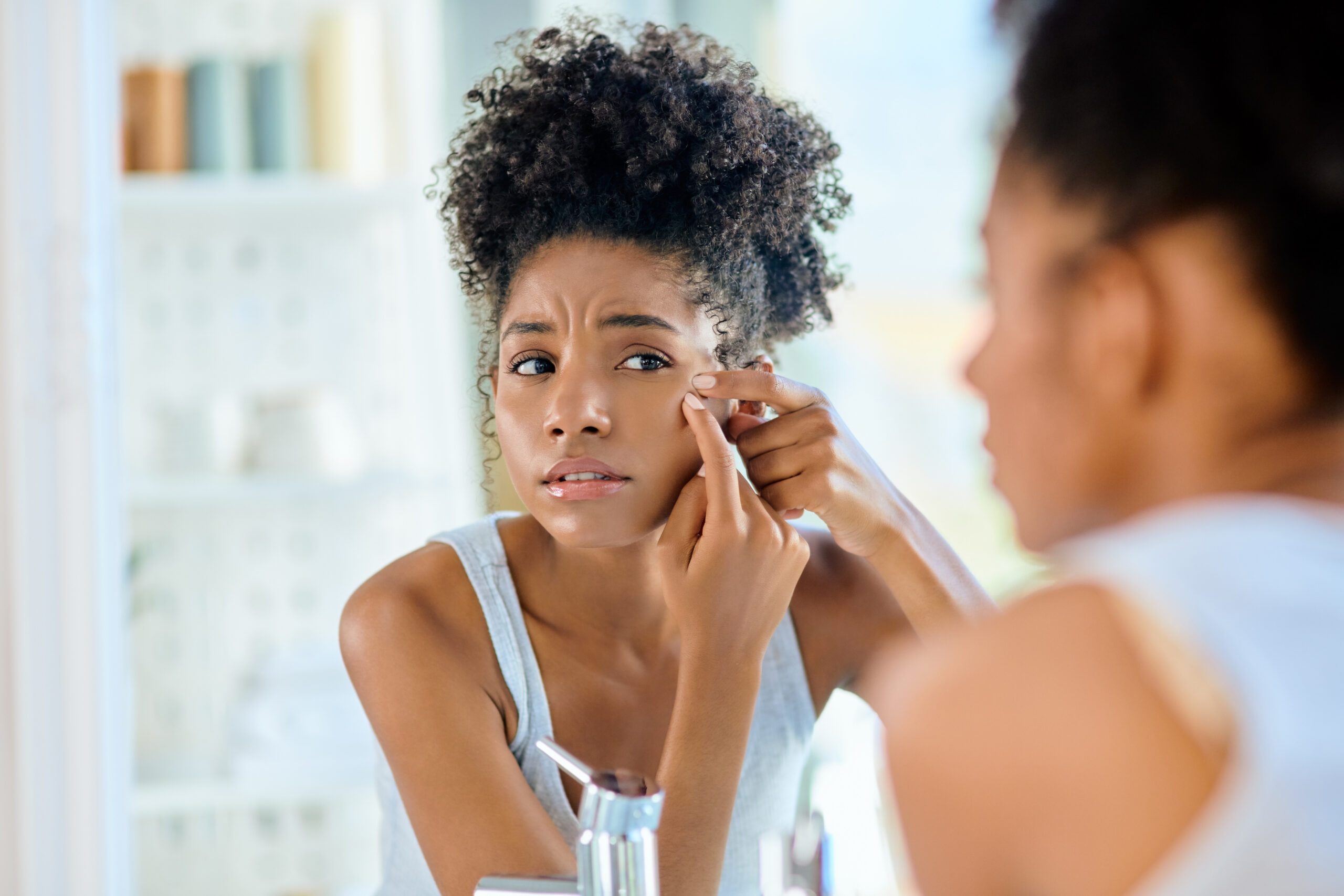
Dr. Kennedy: “It's important to understand that there is a difference between acne-induced post-inflammatory dyspigmentation (discoloration caused by acne) and acne scarring. Post-inflammatory dyspigmentation can be either hyperpigmentation (dark spots) or erythema (red spots).”
“In this situation at-home solutions are an option. The most important thing to do to address discoloration is to protect your skin from the sun. I recommend for my patients to use an SPF of 30 or above. Skin care ingredients that can help with pink/red discoloration include: Niacinamide, azelaic acid, retinoid, ascorbic acid. it's important to be gentle with your skin. Time and sunscreen are the main players here. This type of discoloration can fade on its own.”
“On the other hand, there are true acne scars. These actually change the texture of the skin. There are different forms of scars and what we use to treat them varies depending on the type of scar. The various forms include: ice pick, boxcar, rolling and hypertrophic scars. Unfortunately, these cannot be treated at home. They require in-office procedures with a dermatologist.”
What Products or Treatments Are Best for Lessening Acne Scarring At Home?
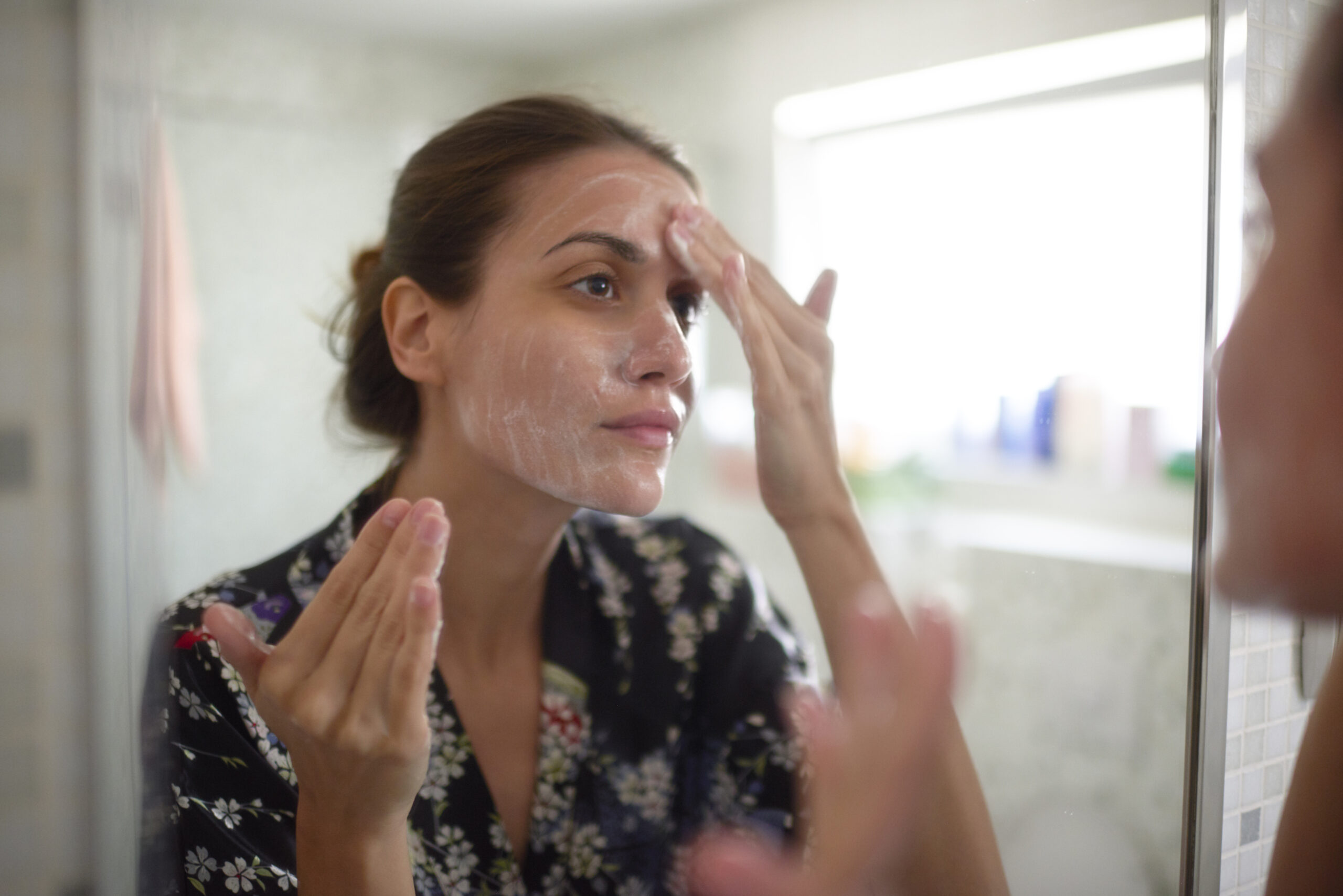
Dr. Pierre: “There are no effective at-home treatments for acne scars. The best over-the-counter products you can use are retinol and glycolic acid but there is a limit to what they can deliver and you should have realistic expectations.”
Dr. Kennedy: “If you have mild to moderate acne you can attempt to treat your skin with over-the-counter products. If you do not see improvement then you should see a dermatologist for some help. Picking your skin can also lead to scarring. It is essential to avoid this … Treating acne early can prevent scarring. Acne scars can be difficult to treat, time-consuming and expensive. Early adequate treatment is much easier for us to do and it prevents the scars in the first place.”
Dr. Umar: “Significant improvement of established acne scars would require more involved procedures like deep reaching lasers, radiofrequency and dermabrasion as well as targeted surgical treatments of severe lesions. For this reason, it is best to leave acne scar removal to the professionals.”
Can Scars Lessen Over Time?
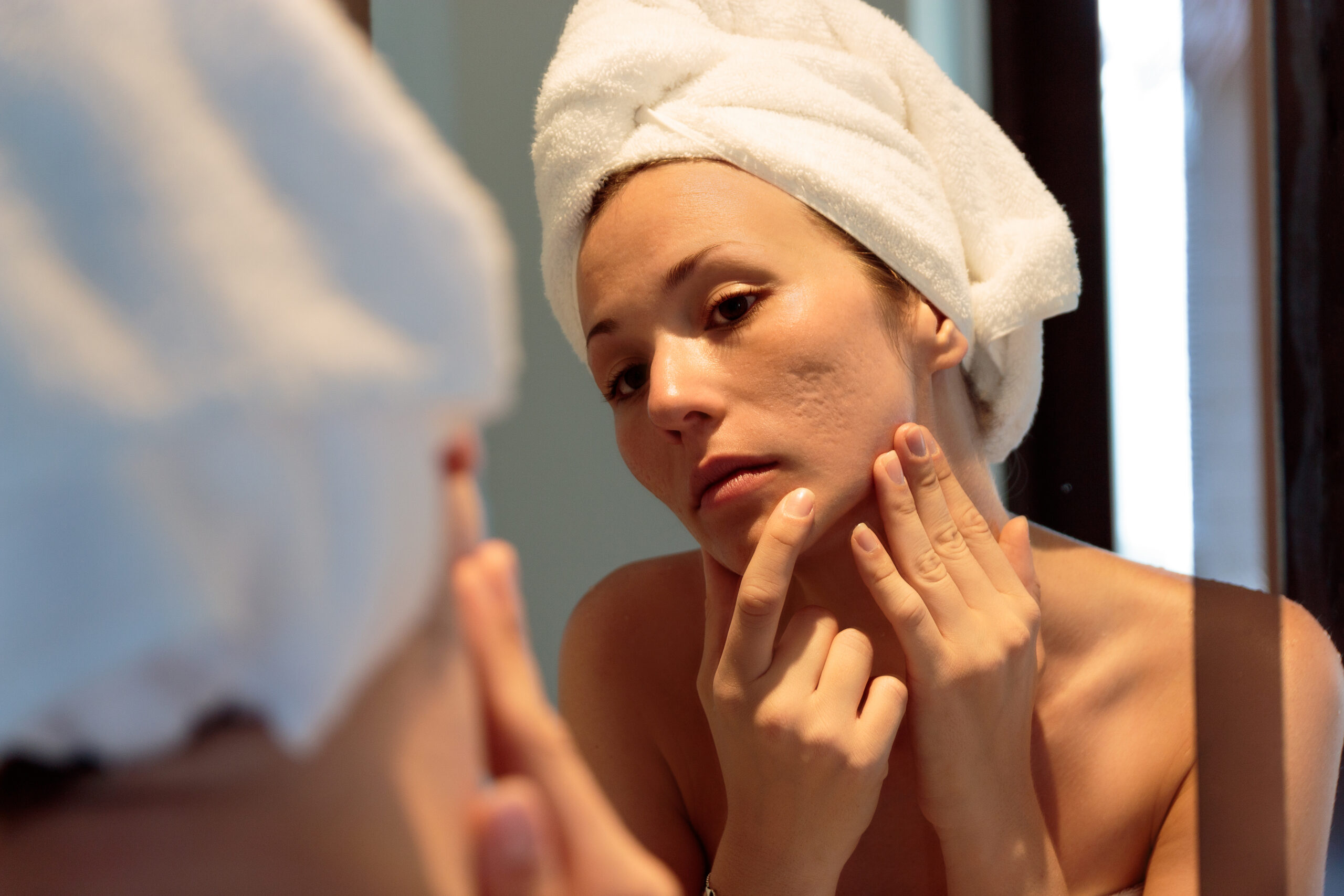
Dr. Pierre: “Scars can definitely improve over time and this largely depends on how well your skin heals.”
Dr. Kennedy: “True acne scars can't fade over time, but discoloration certainly can. About 25% of scars resolve on their own with time … Treating acne appropriately is a key component to preventing discoloration and scars. If you don't get the acne, then you can't get a scar from it.”
When Do We Know It’s Time to See a Dermatologist & Not Treat Ourselves?
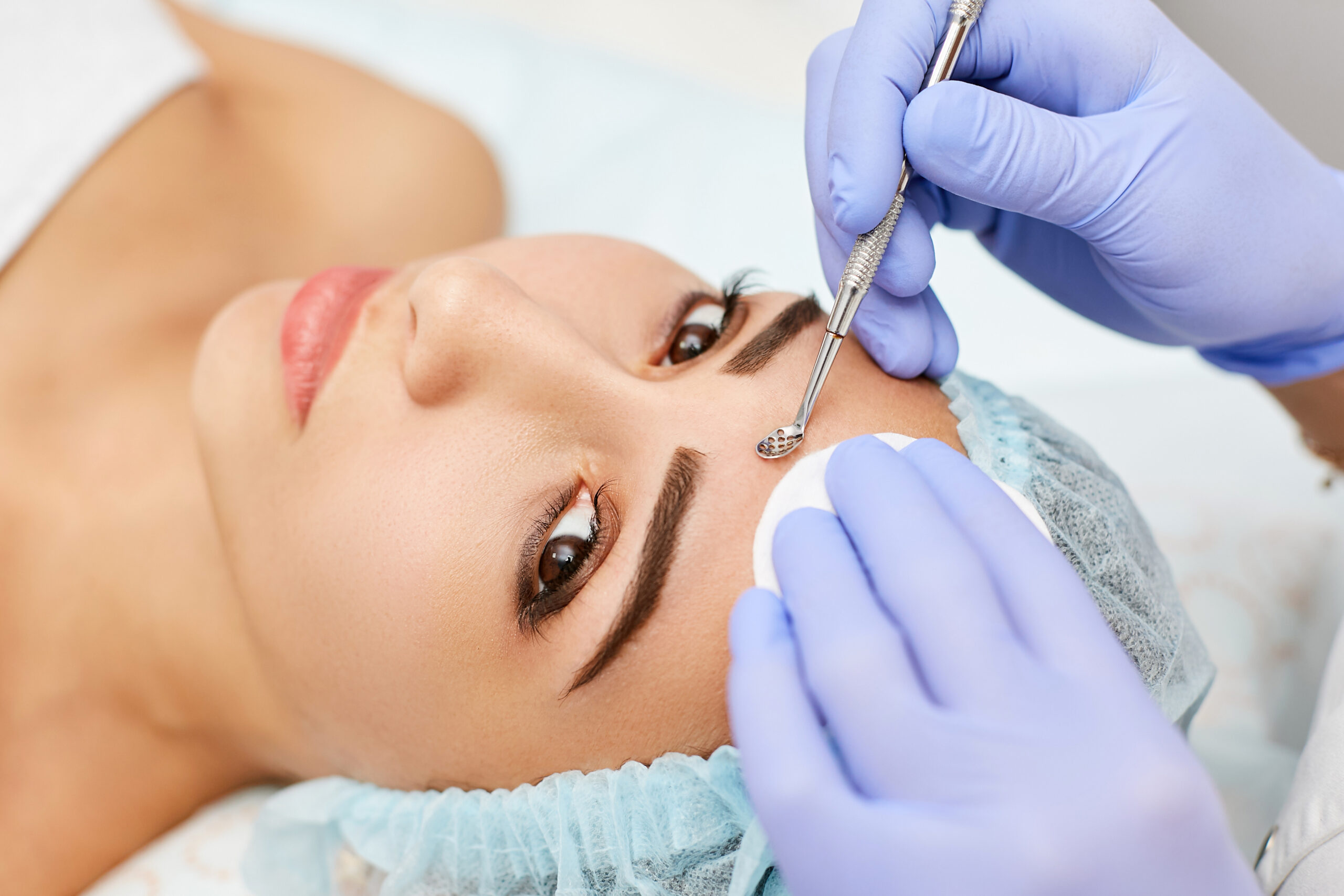
Dr. Chacon: “As a patient it is difficult to know where your acne stands and what tools are available, so it doesn’t hurt to seek guidance or a consultation.”
Dr. Kennedy: “You should definitely see a dermatologist for severe acne. Most over-the-counter products are not sufficient for this type of acne. Another sign that you get to a dermatologist is scarring. If you notice that your acne is resulting in scars, then you must see a dermatologist. Dermatologists have many tools available to treat acne scars. We have lasers that can treat red/pink discolorations and others that can treat dark discolorations. We commonly use resurfacing lasers, like Fraxel to treat true scars that cause a change in skin texture. Other options include, microneedling, subcision (inserting a needle under the acne scar to release the overlying skin from the scar tissue that is pulling it down), filler, or TCA cross (using high strength trichloroacetic acid at the base of the scar to promote remodeling).”
Dr Umar: “Any time that your scars are beginning to impact your self-esteem, your social life, or you feel that scar removal would improve your quality of life, it is time to see a dermatologist. It is best to leave skin treatments and scar removal to professionals. Some at-home remedies, done wrong, could be potentially irritating to the skin or make the appearance of the scar more visible.”
Anna H. Chacon, MD, is a US board-certified dermatologist based in South Florida.
You can find Dr. Lina Kennedy on Instagram for more skin care tips.
You can reach dermatologist Peterson Pierre, MD, of the Pierre Skin Care Institute on the institute's website.
Dr. Sanusi Umar is CEO of Dr. U Hair & Skin Clinic.



